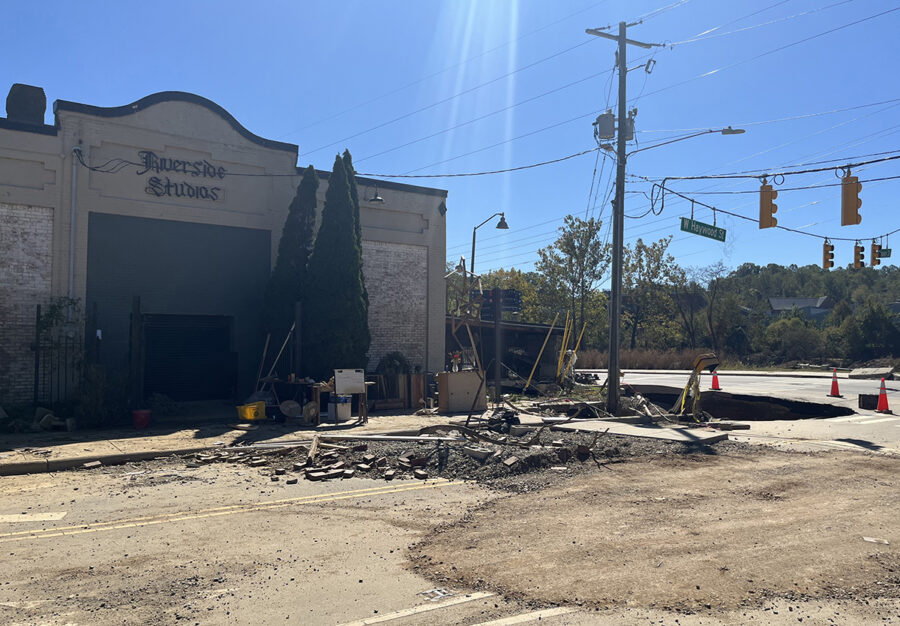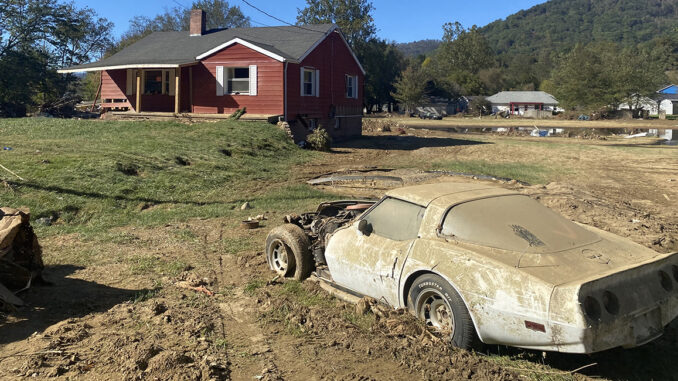
RALEIGH — The General Assembly approved a $273 million Hurricane Helene relief package that leadership says will be just the first of many, as recovery efforts from the storm will likely span years into the future.
House Bill 149 will serve as the vehicle for the package. The bill’s original language will be stripped and replaced with the funding items, and the bill will be retitled to the “Disaster Recovery Act of 2024.” Both chambers passed the bill unanimously last Wednesday and was signed by Gov. Roy Cooper the following day.
During a press conference Wednesday morning before the votes on the measure, Senate Leader Phil Berger (R-Eden) and House Speaker Tim Moore (R-Kings Mountain) unveiled the funding package that includes $250 million to provide state agencies with spending flexibility to address critical needs. That is the exact figure requested by State Budget Director Kristin Walker in an Oct. 7 letter to the legislature.
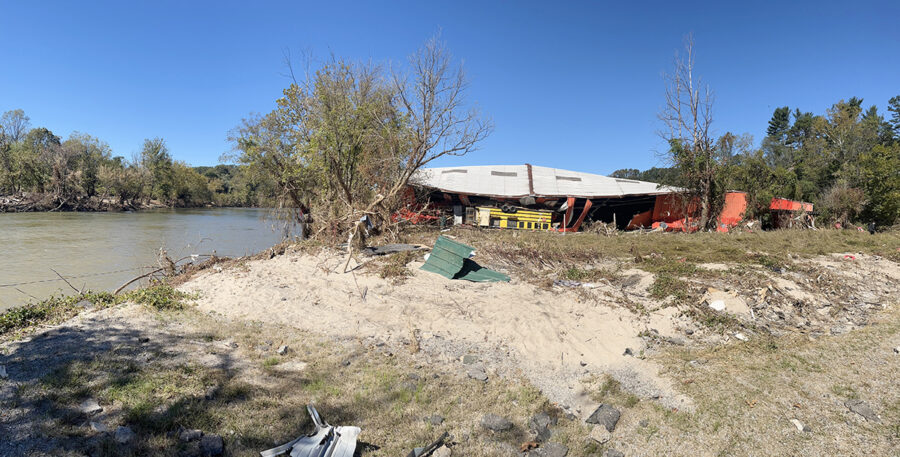
“Areas of many towns are unrecognizable; some even washed away completely,” said Berger. “Roads have been obliterated. Power is still needed in many places. Recovering from Hurricane Helene will be no small task. But I believe we, the state of North Carolina, the people of North Carolina, are up to that task.”
“As Sen. Berger mentioned, we know many have lost their lives,” Moore said. “We know the numbers unaccounted for. … The recovery that is going to have to be done is going to be something that is a Herculean task, but it is something that we will get done.”
Berger and Moore both underscored multiple times that this round of funds was just a first step. The lawmakers indicated the $273 million will be pulled from the Savings Reserve, also known as the “Rainy Day Fund.”
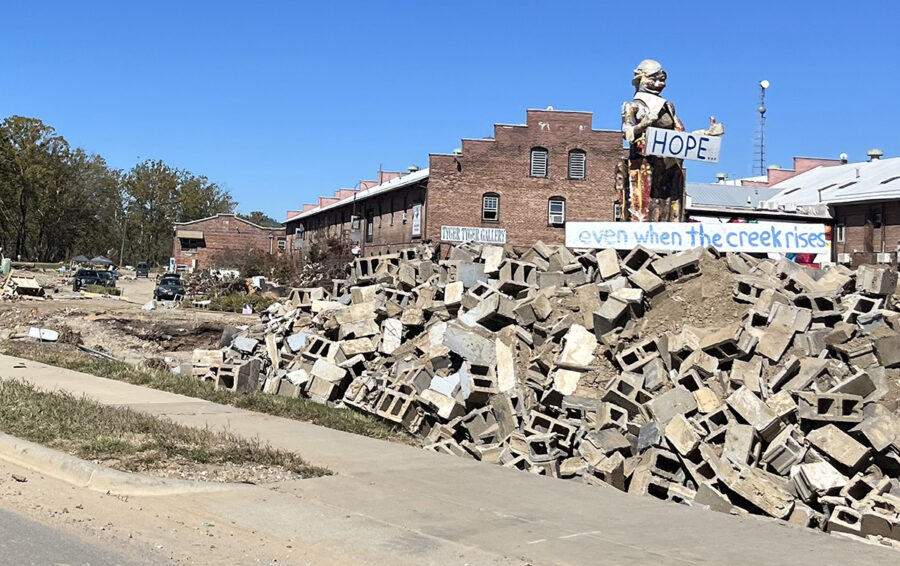
The state has several reserve funds available to help with the impacts of Helene. According to the Sept. 27 state Cash Watch report, the State Emergency and Disaster Relief Fund has nearly $733 million that can be tapped, and the state’s Savings Reserve has more than $4.75 billion available.
The funding also contains $166 million for public school-related needs — $16 million of those funds is tied to federal matching dollars for lost compensation for school nutrition programs, and $50 million is for water and sewer issues. Another $2 million will provide technical assistance for FEMA grants for affected counties, and $5 million will go to the NC State Board of Elections (NCSBE) for voter outreach and communication in the affected areas.
The NCSBE had asked for $2 million for voting needs, but Moore said lawmakers were expanding the funding by $3 million to include all 25 counties plus tribal areas that are under the emergency declaration instead of just the 13 selected by the NCSBE in a resolution passed by the board on Oct. 7.
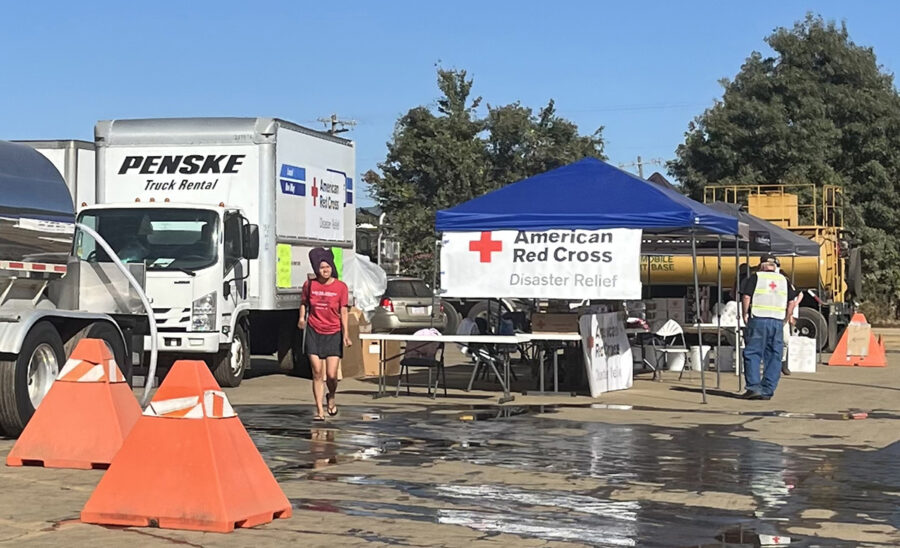
“We felt that it was necessary to not only provide the state board with adequate resources to do what they’re needing to do based on the changes that are taking place,” Moore said, “but also some flexibility so that local boards could get some of that money and assist some of the cash flow issues and some of the shortfalls that they might have.”
Moore said finding both people to work the polls and viable polling sites were part of the consideration for more funds.
“They’re trying to find people to work. … When you have poll sites that literally no longer exist, I mean, they’re not there, right?” Moore said. “Like a fire department or a church or that community building. That building is no longer there. And I know that you all have shown the photos of what’s happened and how just dramatic it is in these areas, but even just seeing the photos does not fully capture the extent of it.”

Moore and Berger said the General Assembly will reconvene Oct. 24 to address more Helene recovery needs.
Several legislators in districts that were hardest hit spoke of the devastation but also zthe resilience of the people in those communities and how thankful they are for the support and supplies that have come from all corners of the state and across the country.
Sen. Ralph Hise (R-Mitchell) was among the handful of legislators who gave brief remarks. He represents portions of nine of the 25 counties hit by the story and flooding; Alleghany, Ashe, Avery, Caldwell, Haywood, Madison, Mitchell, Watauga, Yancey.
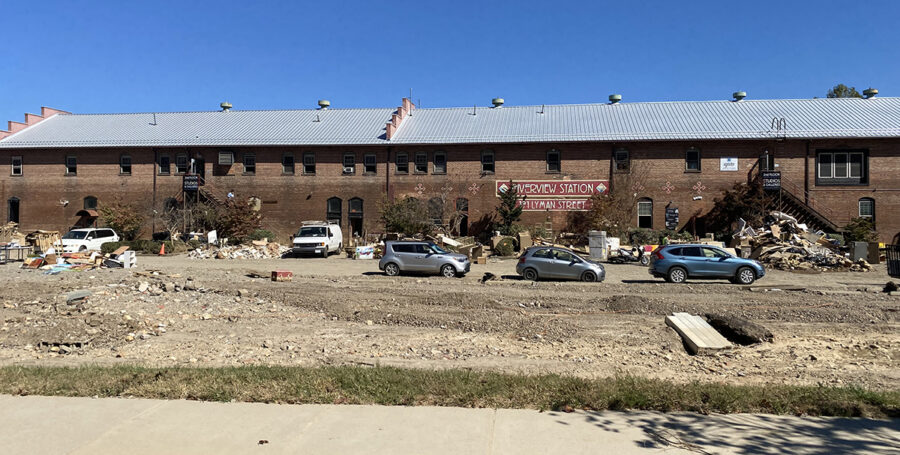
“This is by far the most devastating thing I’ve ever experienced as a community,” said Sen. Ralph Hise, who represents nine of the 25 counties hit by the story and flooding: Alleghany, Ashe, Avery, Caldwell, Haywood, Madison, Mitchell, Watauga and Yancey.
He went on to describe the majority of areas having no water, power, sewer, or cell service coupled with some areas being inaccessible.
“In Mitchell County, the water treatment system for the entire county, both towns, is gone,” said an emotional Hise.” It does not exist and it’s unsalvageable. That’s a four-year process to put a water treatment plant back in. We don’t have a temporary solution for these things right now.”
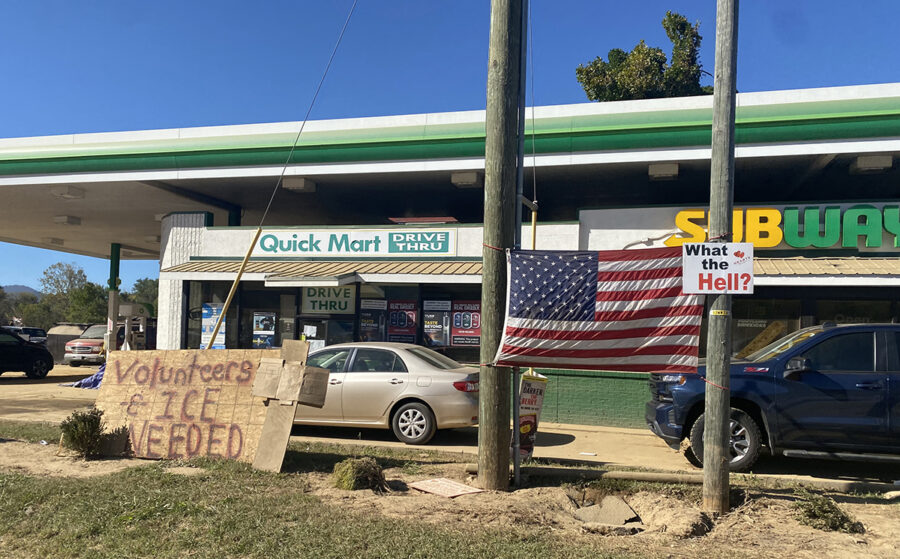
“I promised I wouldn’t cry, but people are still needing help, even though we didn’t ask for it,” said Rep. Jennifer Balkcom (R-Henderson). “This is just a start. This is a start to give people what they need.”
Like Hise, Rep. Dudley Greene (R-Burke) appeared to choke up talking about the devastation.
“There was not a corner of my district that was unimpacted, if not decimated by this, by this storm,” he said.
Greene said with colder temperatures coming, it’s becoming critical to make sure those in shelters have what they need.
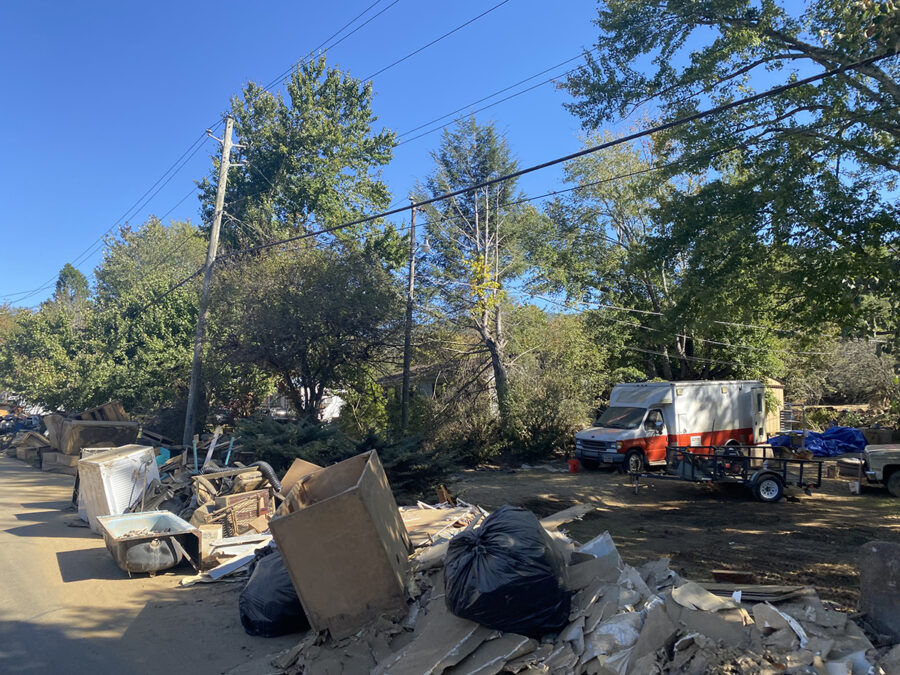
“This morning, the lows were in the 40s. Next week, they’ll be in the 30s,” Greene said, adding “things like kerosene heaters, blankets, warm coats” will be needed.
“I can’t say enough thanks to the folks of North Carolina for what you’ve done, but specifically the folks that are in the mountains right now,” said Rep. Mark Pless (R-Haywood). “There were some challenges initially that could not be met for reasons that we will determine. But the folks stepped up.”
Pless, co-chairman of the Disaster Recovery and Homeland Security Committee, said he has concerns “just like everyone else” that some things were not done correctly.
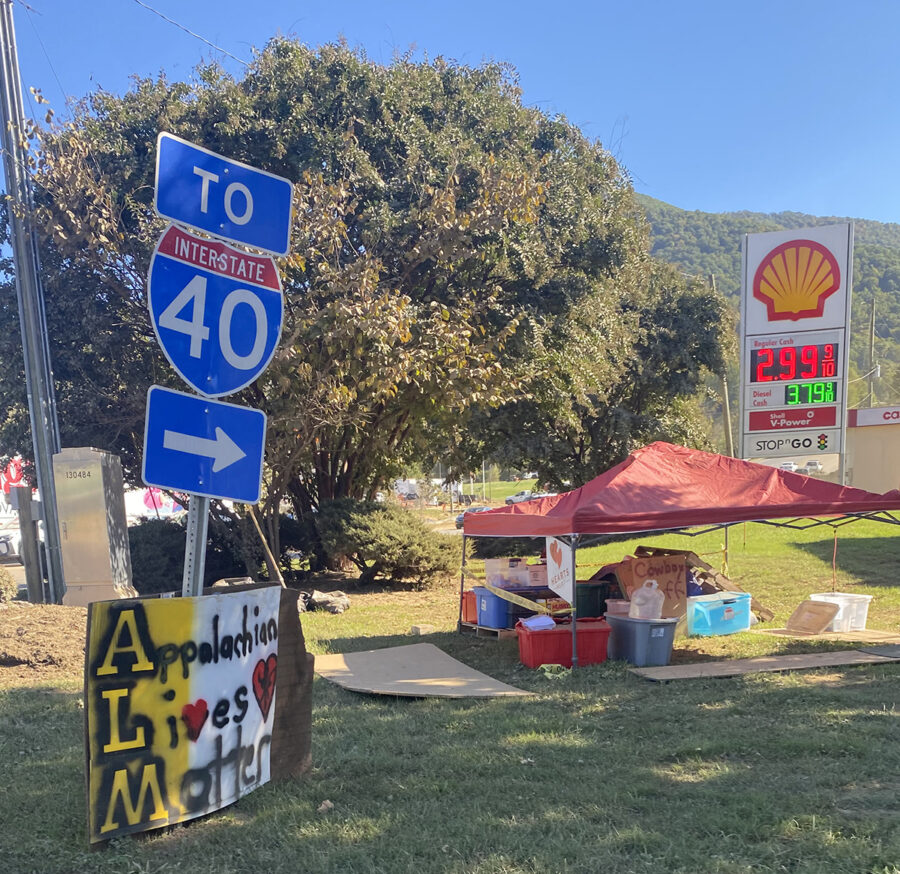
“I’m not going to dismiss everything I’ve heard as being misinformation, but I am going to say there’s a time and there is a place for us to figure out what went wrong,” said Pless. “I’ve sat in on hearings for Matthew, Florence and Tropical Storm Fred. There’s no one in this room that’s perfect and there’s no agency in this state that’s perfect. But we need to figure out what didn’t work.”
For information on NC’s Hurricane Helene Recovery and Resources, visit tinyurl.com/nc-helene.
